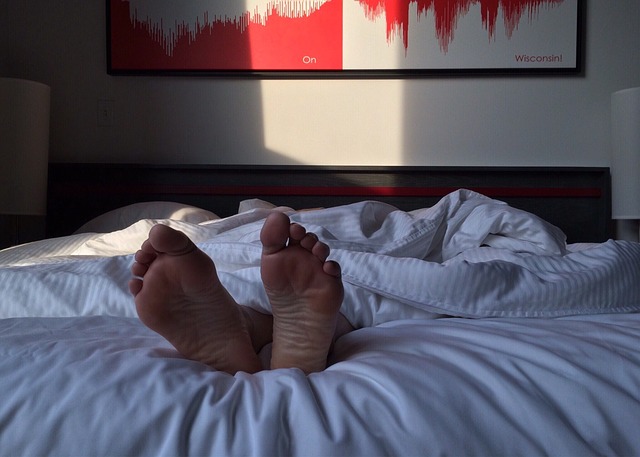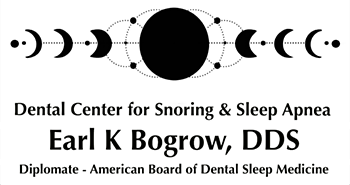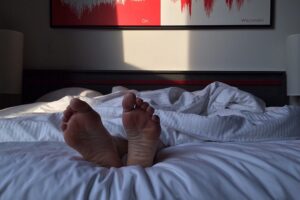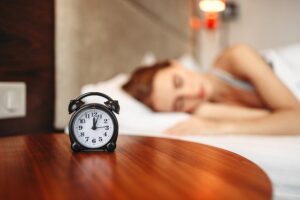How can oral appliance alternatives to CPAP help you with sleep apnea treatment?

Sleep apnea is a serious sleep disorder requiring professional medical help. Dr. Bogrow treats patients who suffer from snoring and sleep apnea. His goal is to find patients effective and comfortable solutions that help improve their quality of life by getting longer, better sleep. At Michigan Sleep Center, patients are treated using oral appliance therapy.
What is oral appliance therapy for sleep apnea?
An oral appliance is worn only during sleep and fits somewhat like an orthodontic retainer. The appliance helps keep the jaw in a forward position, so the upper airway remains open. This can be effective for treating snoring and obstructive sleep apnea. After an evaluation and diagnosis of sleep apnea, Dr. Bogrow will discuss your options and prescribe a custom-made oral appliance.
What are the advantages?
A CPAP can be noisy and burdensome to deal with. In some instances, it can prevent a good night’s sleep. Oral appliances, on the other hand, are non-invasive and can more easily be fit into a busy lifestyle. Patients comment that oral appliance therapy provides benefits such as:
- Being more comfortable
- Easier to wear
- Much quieter
- Very portable
- Make it easier to travel
- Easier to care for
How does an oral appliance treat sleep apnea?
If you have sleep apnea and Dr. Bogrow prescribes the use of an oral appliance, he will make sure it fits you well. They come in a variety of designs, but it’s most important that it fits you. The main purpose of using them is to keep the airway open while you are sleeping. This will prevent it from collapsing and blocking free airflow. An oral appliance will do three things:
- The oral appliance will hold the airway open by bringing the lower jaw forward slightly.
- It holds the tongue in position so it cannot fall backward and cause airway obstruction while you are sleeping.
- It may do one or both of these actions at the same time.
How effective are these devices?
The most popular treatment for sleep apnea is CPAP. But after more research, oral appliances are being prescribed more frequently. They often provide an alternative to the use of a CPAP or sleep apnea surgery. An oral appliance is less expensive and less invasive. In cases where a patient is suffering from sleep apnea and being overweight, an they may be used along with an appropriate weight loss program. Oral appliances help reduce snoring as well by reducing airway turbulence. It is important to work with Dr. Bogrow at the Michigan Sleep Apnea Center to determine the best treatment course for you.
Will insurance pay for oral appliances?
In most cases, medical insurance, not dental insurance, will pay for at least part of the costs of obtaining an oral appliance. Medicare and sometimes Medicaid will pay for the device, especially if the CPAP was not effective. At Michigan Sleep Apnea Center, initial costs include the appliance, the exam, and an entire year of follow-up visits and adjustments. Dr. Bogrow works diligently to minimize patient costs.
What’s it like to live with oral appliance therapy?
When oral appliance therapy is effective, it can make you feel like a brand new person. It will reduce your interrupted sleep and associated symptoms. This can improve your quality of life dramatically. You may be able to sleep better and feel better throughout the daytime.
How do I get an oral appliance?
Your first step, after receiving a medical diagnosis of sleep apnea from a physician, is to schedule an initial complimentary consultation with Dr. Bogrow, to confirm that appliance therapy is an appropriate treatment for your situation. We will review your history and discuss your symptoms and lifestyle. At that time we will also discuss your medical insurance and how your coverage will be used to cover the cost of the appliance.
If you are ready to sleep better and feel better, call us today to schedule a visit with Dr. Bogrow.









